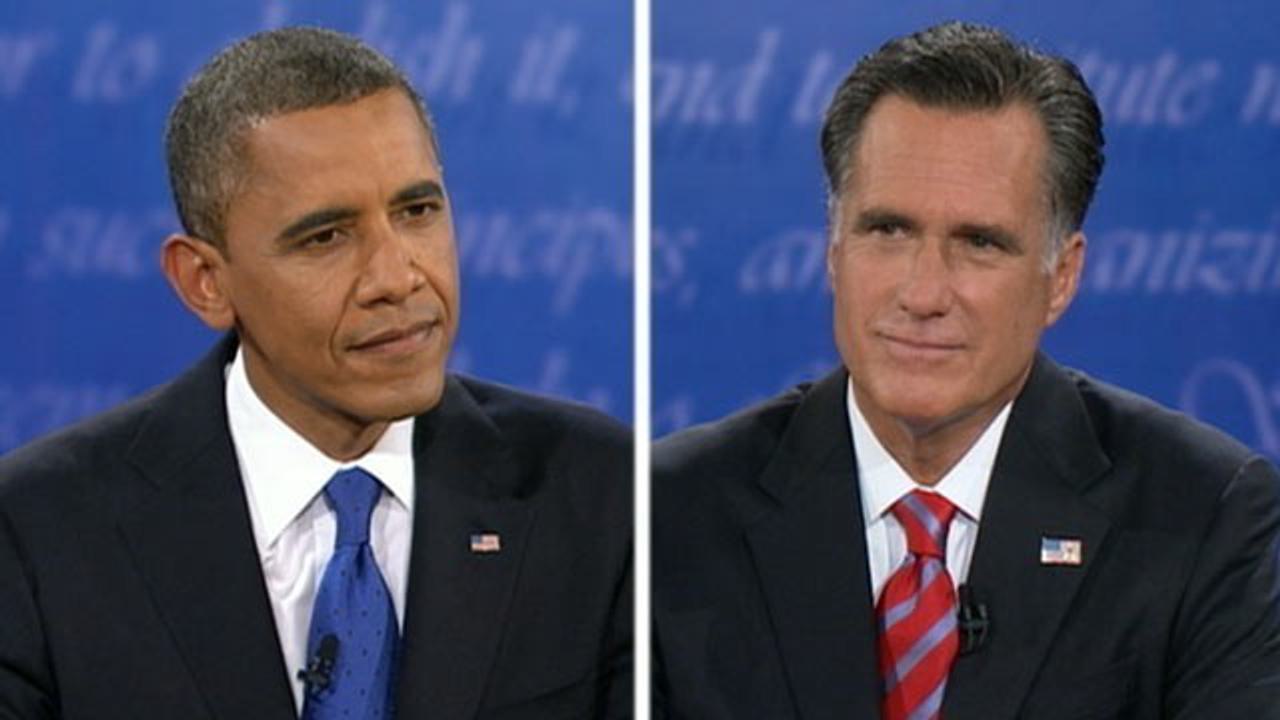
US Presidential candidate flip-flopping laid bare
President Barack Obama and Mitt Romney debated foreign policy at Lynn University in Boca Raton, Florida.
The US presidential campaign trails for President Barack Obama and Republican nominee Mitt Romney have been marred with accusations of flip flopping on numerous issues (Romney on abortion and Obama on gay-marriage, for instance), resulting in voters questioning exactly where the candidates sit on the political spectrum and what exactly each will do if elected.
The third and final debate between President Barack Obama and Republican challenger Mitt Romney took place on Monday at Lynn University, Boca Raton, Florida and centered on foreign policy. Despite the increasing tensions with Iran and the ongoing Syrian conflict, issues concerning abortion, same-sex marriage, Obamacare and its unpopular health mandate, as well as the constant dithering over tax rates that still plague American politics.
Monday night was the candidates’ last chance to speak to a national audience about what they will do to pull America out of the depths of recession and back onto a hoped-for path of prosperity and opportunity.
While instances of flip-flopping provide each party ample fodder to spice up presidential debates, a candidate’s adaptation to a particular issue isn’t always a result of public pandering. A change in position can genuinely reflect how a candidate has evolved over the years and has reached a new level of understanding.
Author and Huffington Post contributor, William B. Bradshaw, defines flip-flopping when a candidate, “suddenly changes his or her mind in the midst of a campaign based on the climate of the campaign or what polls are showing.” For example, Mitt Romney’s declaration that he “will not reduce the taxes paid by high-income Americans” during the first Presidential debate, had many viewers wondering why he suddenly contradicted the platform of his campaign.
Over the years both candidates’ political stances have altered. When Obama and Romney ran for state office, their views on positions aligned with those of their statewide electorates. Now in the general election, both candidates must adjust their standings in order to connect with a nationwide audience, as Brendan Nyhan from Columbia Journalism Review explains.
In 2002, when Mitt Romney campaigned for Governor of Massachusetts, he positioned himself as a pro-choice candidate by saying that “a woman should have the right to make her own choices” regarding abortion. Fast forward ten years and the Romney platform is staunchly pro-life, seeking to outlaw abortion except in cases of rape, incest, or if the pregnancy interferes with the life of the mother.
Regarding President Obama, in his 1996 campaign for Illinois State Senate he was in favour of “legalising same-sex marriages,” then in 1998 he was “undecided”. Now in 2012 he is endorsing same-sex marriage.
Amending a position for “electoral incentives” is necessary in order to win elections. If a candidate does not adapt, Nyhan explains, “they lose.”
But how does evolving for electoral gain affect voters?
According to a report in Discovery News, flip-flopping can have a positive effect on a voter’s mental image if the candidate’s new position evolved to accord with his or her own. However, if a voter regards the change as self-interested, then switching positions can actually harm public opinion and adversely affect a candidate’s campaign.
But the report goes on to state that most voters do not accurately process a candidate’s official platform. Citizens are subject to bias when scrutinising candidates and project their favourable opinions about issues onto the ones they like, engaging in “motivated reasoning.”
And when it comes to flip-flopping, the way the public assesses it is largely correlated to a candidate’s popularity. Citizens may largely ignore the flip-flop if they like the candidate but sensationalise its importance if they dislike the candidate.
So, is Mitt Romney really like an Etch-a-Sketch, who is willing to say or do anything for political gain, and who also happens to suffer from what Obama terms as “Romnesia”? And is President Barack Obama’s new endorsement of gay-marriage just a political move to win over public opinion?
As Nylan states, “The straight-talking politician who always says what he thinks and never changes his mind for political reasons is a fiction.” No matter what the candidates personally feel, they will have to set aside their personal views in order to adequately represent their constituencies.
Below are five of the most contested issues that, over the years, have garnered different reactions from the candidates. Can Obama and Romney be convicted of flip-flopping to win the 2012 Presidential election or have their attitudes evolved from years of experience to reflect cultural dynamics?




